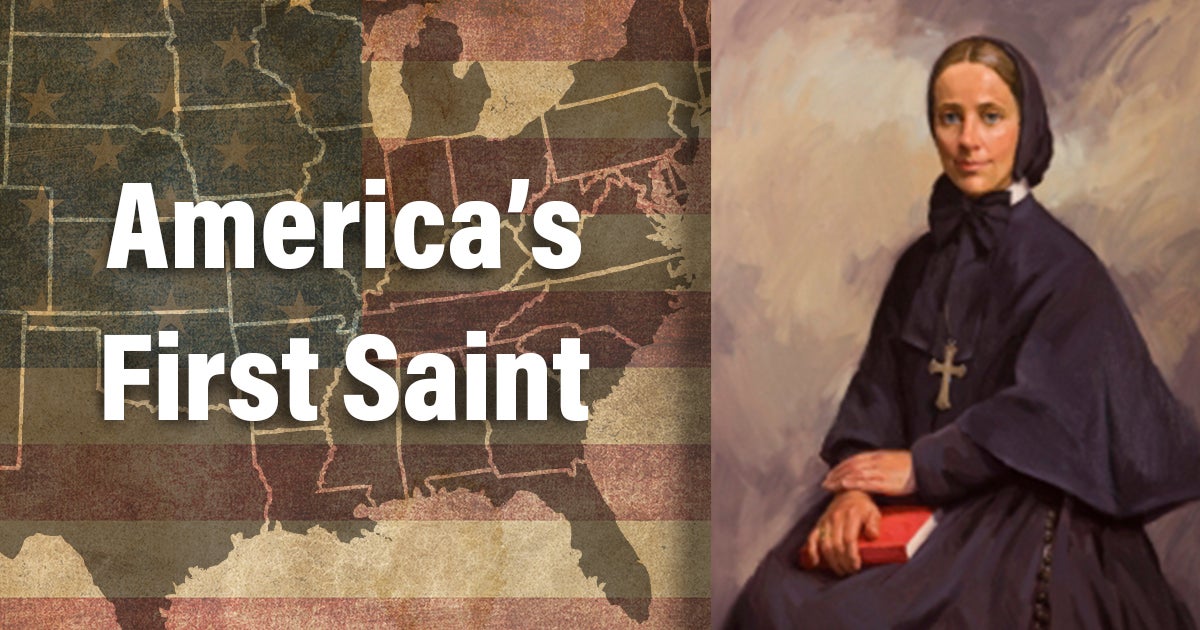
by Emma Sumlin • 5 minutes
Across America, government officials are criminalizing compassion. First Liberty is in the midst of multiple cases involving houses of worship and ministries who are being targeted for taking care of the most vulnerable and defenseless among us.
If government continues to criminalize compassion, it’s going to eventually crush the heart and soul of good Samaritans whose faith inspires them to serve. And without them, who would take care of so many people in need?
This week, I had an opportunity to reflect and remember the life of one of these faithful saints, someone whose compassion and ministry had an enormous impact in America—and around the world.
St. Frances Cabrini dedicated her life to share her faith and help the poor, orphaned and sick. Because of her devotion, compassion and determination amidst adversity, she was the first American to become a saint.
Her example reminds us why it’s essential to protect religious liberty. The clients First Liberty defends—just like Cabrini—are motivated by their faith to do good works for those in need. If we fail to protect religious freedom, we wouldn’t have ministries or people like Cabrini who change the world with their efforts of compassion.
Serving The Least of These: A Divine Calling
Frances Xavier Cabrini was born July 15, 1850, in a small village outside of Milan, Italy, called Sant’Angelo Lodigiano. Since youth, Cabrini was eager to minister to the broken, longing to be a missionary and to join a religious order.
Cabrini founded the Missionary Sisters of the Sacred Heart of Jesus with seven other women in 1880 and in 1889, Cabrini and the sisters voyaged to New York to minister to impoverished Italian immigrants. She became a naturalized U.S. citizen in 1909.
At this time, the U.S. was considered mission territory due to its lack of priests and churches. Manhattan, New York was a city of poverty and unrest when Cabrini and the sisters arrived. It was home to Italian miners who worked tirelessly all day, only to gain poor wages., leaving their children lacking for food, basic education, and supervision.
Many people were prejudiced against Cabrini as an Italian woman. They thought her mission was unnecessary and doubted her abilities.
The day Cabrini arrived, Archbishop Michael Corrigan told her to get on a boat and go back to Italy. He even went as far as forbidding Cabrini from requesting money from Americans to fund her ministry for those desperately in need.
But that did not stop her.
Cabrini opened a school in the city that had 200 children enrolled immediately. Parents were overjoyed to see their children have a structured education with loving teachers and spiritual guidance.
Pope Pius XII said of Cabrini, “She gathered endangered youth in safe houses, and taught the holy and rightful principles. She consoled the spirit of the imprisoned, giving them the comfort of life eternal…”
A newspaper at the time said that Cabrini and the sisters entered “certain forbidding places where not even the police dare[d] to enter.” She and the sisters ministered in the depths of the mines, where oxygen was limited, to hardworking men doused with discouragement.
“How moving it is to see mature men cry tenderly at finding themselves again in an Italian church, where the word of God reaches them in their mother tongue…” Cabrini wrote.
Even so, she continued to encounter strong opposition. Many in the community and even some in the church opposed her ministry, subjecting Cabrini and the sisters to humiliations and threats.
“[The] political culture in New York…refused to recognize the humanitarian efforts of Cabrini and her sisters,” writes Chris Herlinger in the Global Sisters Report.
Despite the odds against her, Cabrini founded 67 orphanages, schools and hospitals in New York and worldwide. Her ministry did not cease until she died, and even then, continued through the Missionary Sisters of the Sacred Heart of Jesus, which still exists today.
Angel Studios released their film “Cabrini” in 2024, grossing 19.5 million dollars in the United States, and 20.1 million worldwide. Faithful to Cabrini’s story, the film received high ratings from critics and audiences, who described it as “a powerful reminder of what can happen when people are willing to make sacrifices for the things they believe in.”
Check out the trailer below:
Cabrini lived out what we read in Galatians 6:9, “Let us not become weary in doing good.” As many opponents attack Good Samaritans, we cannot waver in our commitment to foster compassion—and we can do that by protecting religious freedom in our country.
First Liberty’s Fight for Freedom
First Liberty is fighting for pastors whose compassion has been criminalized. Their ministries help the poor, the hungry and those who don’t have a safe place to stay.
But instead of supporting them, government officials are targeting and punishing these houses of worship and ministries for taking care of people. This is wrong and violates the First Amendment, which that ensures the rights of Americans to practice their faith freely:
The fight to stop the criminalization of compassion is far from over. We need your support to help us win the cases we are fighting. These cases impact everyone’s freedom to serve their communities.
By winning those cases, more Good Samaritans like Cabrini, our clients and ministries nationwide will be able to pursue and fulfill their divinely inspired calling.
Please give to First Liberty today.